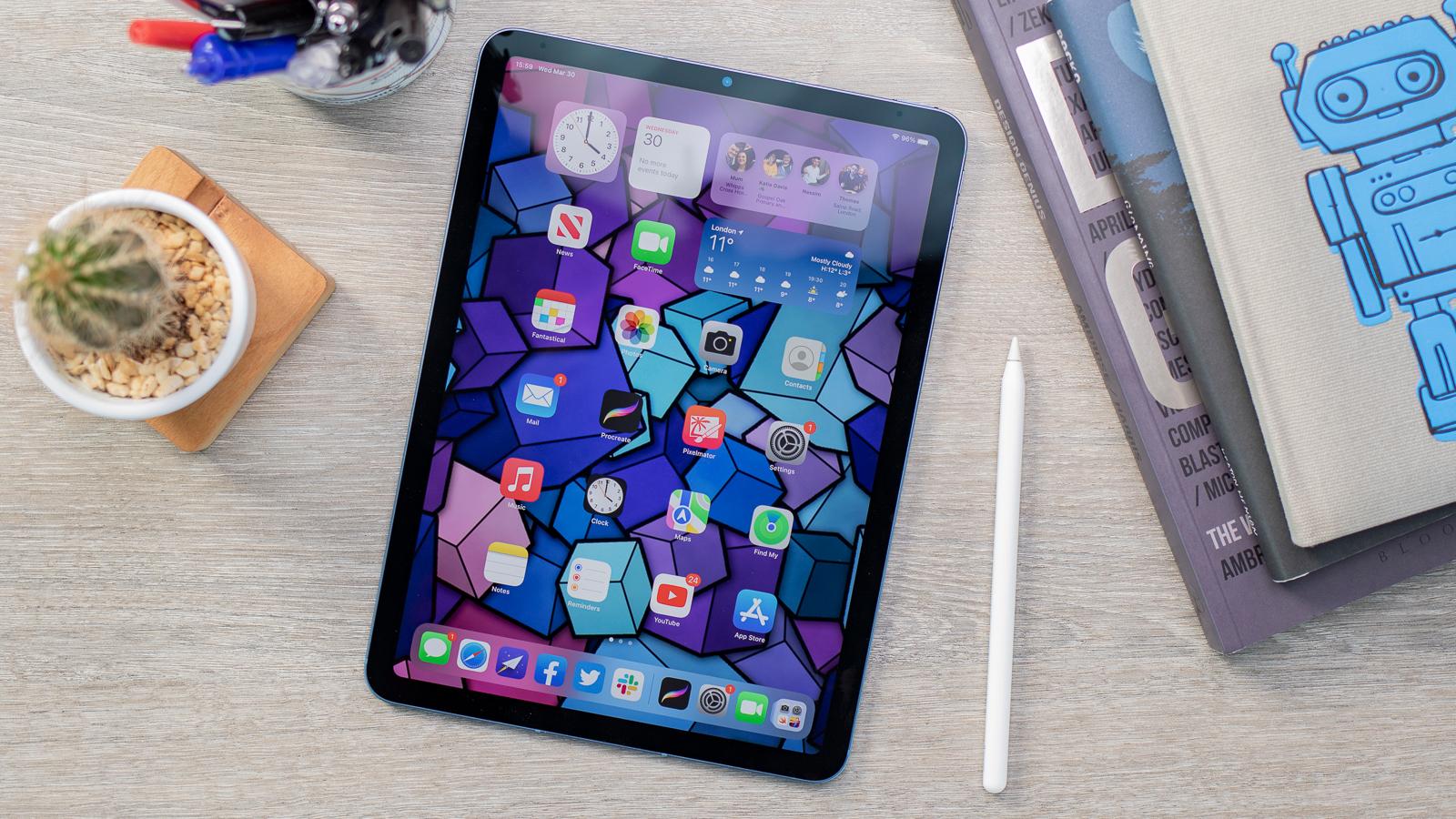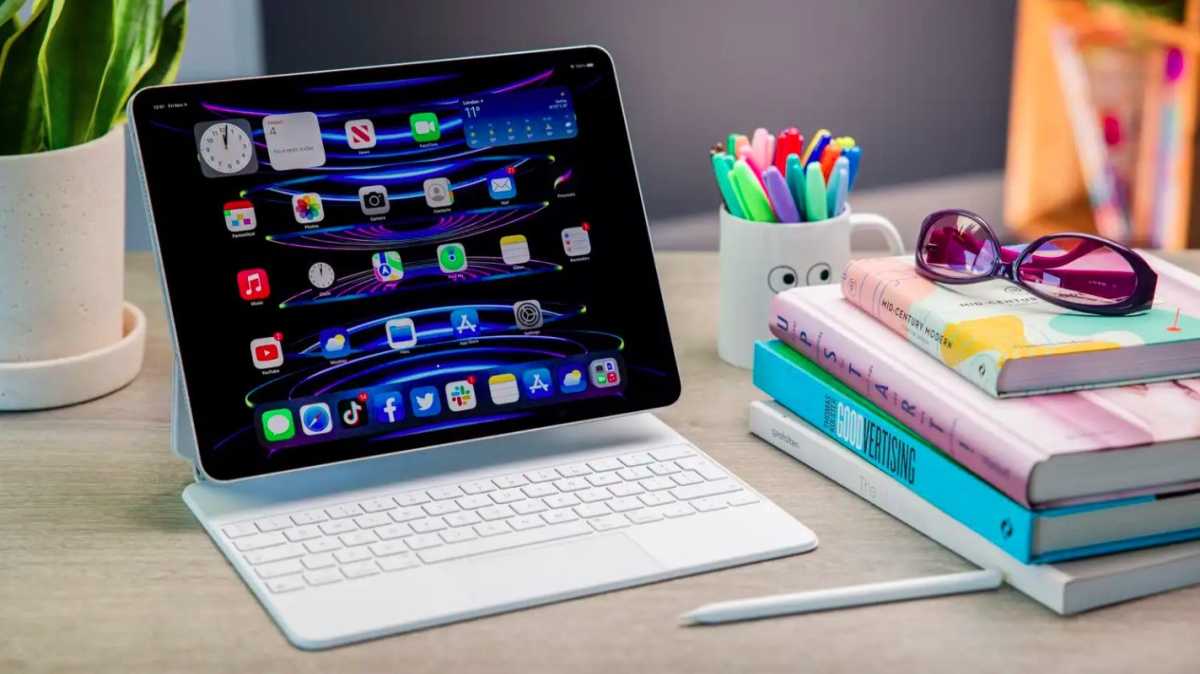In an extensive new report, the widely respected analyst Ming-Chi Kuo has made a number of bombshell predictions about next year’s iPad launches.
With the end of 2023 rapidly approaching, it’s becoming increasingly clear that Apple is about to go an entire calendar year without updating any of its iPad lines for the first time since the product debuted in 2010. But with the tablet department doing badly yet again in the company’s recent financial report, it’s crucial for the iPad to make waves with some major announcements in 2024. Going by Kuo’s claims, which largely align with other reports, that now seems likely.
The analyst believes, first of all, that all four iPad lines—standard, mini, Air, and Pro—are headed for a refresh in 2024, which would be another first for a single calendar year. The most Apple has ever done before is three, which happened each year from 2019 to 2022. But iPads are updated at varied and irregular intervals, which produces a staggered schedule that rarely lines up so neatly.
New iPad Airs
Of the four, the showiest change, according to Kuo’s sources, will come in the Air category. Apple has only ever offered the Air in a single screen size at any one time, even though this has gradually crept up over the years; from an initial 9.7 inches to the current 10.9 inches. But in 2024, the Air line will be split into two sizes, matching the sales strategy for the iPad Pro. Entering mass production in the first half of 2024 will be a new 10.9-inch Air—rumored to have a new processor—and a completely new 12.9-inch model.
As we frequently see with the mid-size and large Pros, these devices will reportedly differ in ways other than screen and battery size. The 12.9-inch model will have a better screen, not just a bigger one, according to Kuo: “The 12.9-inch iPad Air is an all-new model, and while it lacks mini-LED, it benefits from an Oxide backplane (the same spec as the existing mini-LED iPad Pros), offering better display performance than the 10.9-inch iPad Air with an a-Si backplane.”
We can assume both models will get an M2 or an M3 processor as well as some new colors.

The 10.9-inch iPad Air may be getting a larger sibling next year.
Dominik Tomaszewski / Foundry
New iPad Pros
While we’re on the subject of displays, another important change is coming to the iPad Pro. For Apple’s premium tablet, the current LED (on the 10.9-inch model) and mini-LED (12.9-inch) will be replaced by OLED. This is a clear upgrade. For quality, contrast, and power efficiency, OLED is the tech to go for, which is why it’s already used in the iPhone and has been since the iPhone X.
As expected, Kuo also says the new Pros will also get Apple’s new M3 Mac-class processor.
Kuo had been expecting the new Pros to enter mass production early in the first half of 2024, but now says this has been pushed back too late in the first half or even the second half. It’s also likely to get a price increase, based it would appear on the need to create breathing room for the new and more expensive 12.9-inch iPad Air.
“If Apple wants to maintain the price gap between the iPad Air and iPad Pro to preserve its existing product segmentation strategy,” Kuo explains, “it means that the new OLED iPad Pros may see a price increase.”

The next iPad Pro will reportedly be Apple’s first OLED tablet.
Dominik Tomaszewski / Foundry
Other new iPads
That leaves the standard and mini iPad models, where fewer fireworks are expected.
The main headlines here are that the 7th-gen iPad mini appears to have been delayed: Kuo’s estimate has moved from the first to the second half of 2024 for mass production. He doesn’t say whether this means there is any danger of the on-sale date slipping to 2025, but for now, that doesn’t seem to be a concern. Previous rumors have suggested the new mini will be extremely similar to the current model, with the main difference being a new processor.
The 11th-gen iPad, meanwhile, will also enter mass production in 2H24, likely with a new chip and little else. Another thing that most of us had expected was the discontinuation of the 9th-gen iPad, which at the time of writing is the only Lightning iPad still in Apple’s store. Sure enough, Kuo says that will be phased out (or technically it will “go to end-of-life”) before the end of 2024. That would leave a sizable hole in the entry-level spot—the 9th-gen iPad starts at $329 while the 10th-gen is $449—but Kuo doesn’t say whether Apple plans to cut the price of the 11-gen or continue to sell the 10th-gen model.


